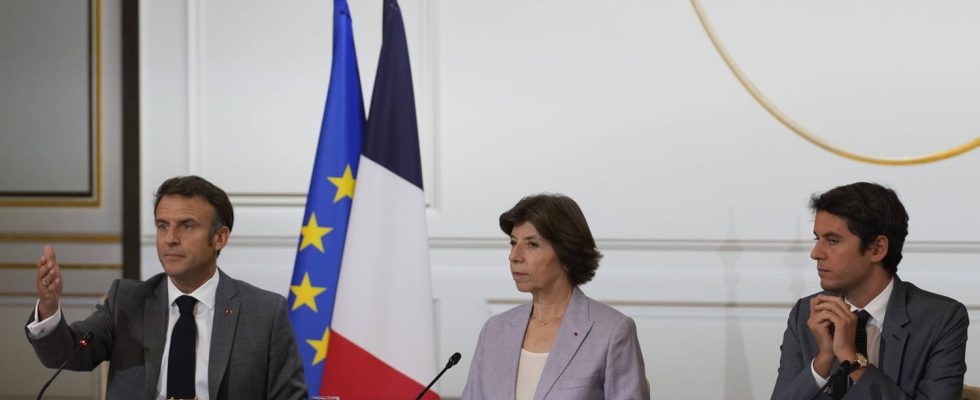Before they can hope to take office, potential new ministers will have to go through the examination box and the informed radars of the High Authority for the Transparency of Public Life (HATVP).
Newly appointed Prime Minister, Gabriel Attal is now working to form his own government. The tenant of Matignon had dinner with Emmanuel Macron Tuesday evening to begin discussions on this subject and form a team which could be tighter than under the Borne era. In addition to reducing the government, its composition will have to be achieved according to a subtle balance between the forces of the majority, such as the MoDem and Horizons. New faces could also enter, with a potential opening on the right, or the arrival of heavyweights who are missing from the majority.
Whatever happens, the incoming ministers will not be known for a few days, at least. All applications must be studied by the High Authority for Transparency in Public Life (HATVP) responsible for controlling the assets of public officials, avoiding situations of conflicts of interest and monitoring reconversions between the private and public sectors. This is, in a way, the big exam. The president of the HATVP examines the situation of the ministers with several collaborators after having obtained the list of those concerned, by the secretary general of the Élysée or the head of state himself. An intervention which slightly delays the appointment of the new ministers who will officiate under the leadership of Gabriel Attal.
The High Authority carries out an asset control
When a minister takes office, since 2013, he has been required to declare his assets to the independent authority (real estate, movable property, shares, bank accounts, loans). This is the first field of action of the HATVP: heritage control. The control carried out by the High Authority makes it possible to “ensure the consistency of the elements declared”, “search for significant omissions or unexplained variations in heritage” as indicated on its official website, and finally, detect suspicious or illicit enrichment. Other checks prior to the appointment of a minister may take place since the series of laws for confidence in political life established by Emmanuel Macron in 2017.
The President of the Republic can consult Bulletin No. 2 of the future minister’s criminal record; it includes any possible legal convictions and administrative sanctions. A tax return document can also be requested by the head of state. Finally, he can ask to consult the interests and assets of a minister if the latter has already made a declaration to the High Authority in the past.
Prevention of conflicts of interest
But that’s not all, future ministers will also have to complete a declaration of interests to the HATVP at the start of their mandate. The latter reveals past or present professional activities, the various participations in the governing bodies of public or private organizations, voluntary activities or even the spouse’s profession. We are talking about preventing conflicts of interest. When the examination of a declaration leads to the detection of a conflict of interest situation, the High Authority has several levers of action allowing it to put an end to it. “Make the interest in question public, or adopt restrictive measures taking the form of a power of injunction” as it indicates on its site.
